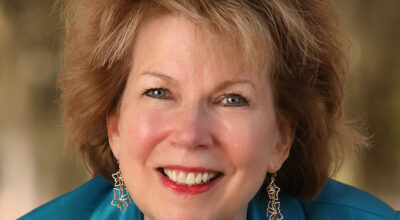St. James Hospital experts look inside opioid “crisis”
Published 12:17 am Tuesday, February 26, 2019

- Opioid abuse is a problem for all age groups, including seniors.
LUTCHER — Scott Dantonio says most people know someone impacted by opioids.
As the director of pharmacy for St. James Parish Hospital, Dantonio, RPh, knows firsthand his hospital, like so many across the River Region and beyond, is committed to actively fighting “this huge health care concern.”
“Our management plan here at St. James Parish Hospital will focus on strategies to address the opioid epidemic here at home,” Dantonio said. “We are partnering with local and national organizations to collect data, develop protocols and share best practices to do our part to address this issue.”
Dantonio serves on the Board of the Louisiana Society of Health System Pharmacists and belongs to the American Society of Health System Pharmacists and the Louisiana Pharmacist Association.
Lutcher Family Clinic Physician Cullen Ocmond said new doctors are trained to utilize pain medication as a last resort.
“They learn about the side effects and dangers associated with long-term use,” Ocmond said. “It is not just about addiction. These medications can also have serious side-effects.”
Dantonio and Ocmond, along with many of their colleagues at St. James Parish Hospital, provided L’OBSERVATEUR a look inside the opioid epidemic from the view of health care professionals.
It is a hard topic for many to talk about because it’s easy to understand how abuse and addiction can easily occur in patients who never had any ill intentions.
With that in mind, the following information shared by local health professionals was done so with just a job title listed, but it nonetheless spotlights an issue damaging our community.
One St. James Parish Hospital nurse leader said addiction could start by a misunderstanding of goals in regards to pain.
With the example of chronic pain, the goal is reducing pain so an individual has the ability to function — not to eliminate pain.
“Goals should be to prevent further opioid dependence,” the nurse leader said. “Education is key in the effort to provide pain relief options that are safe and appropriate in order to stop contributing to the existing crisis.”
A family practice physician at St. James Parish Hospital said some patients start doctor shopping, seeing multiple physicians to get more, visiting ERs and eventually turn to street drugs in desperation since they can only get so much pain medication in a legal way.
“Pain medications are highly addictive,” the physician said. “The Board of Pharmacies regulates opioid prescribing guidelines. There are now federal regulations and laws determining which diagnoses can get prescriptions, how long they can be taken and how much time must pass between prescriptions.”
Some believe part of the problem started as much as 20 years ago when patient satisfaction was measured and patients were unhappy with care because they were still in pain.
Physicians started to give more medication, because they were really trying to help.
Now, a family practice physician stresses, pain medication should be a last resort.
Other methods such as anti-inflammatories and steroid injections should be tried.
“It is rare for any of my patients to get to the step of opioids,” the family practice physician said. “I first review a patient’s history heavily and, if I do prescribe, it is usually due to a chronic illness such as cancer or a patient on dialysis. Some people do need it, but it is viewed as a last resort.”
Emergency room nurses know many patients start receiving medications for an injury, never with the intention of becoming addicted.
Eventually, though, some become addicted, intake increases and, for some, it’s not enough and they turn to heroin.
“Opioid abuse is a problem and is getting worse,” one nurse said. “Health care professionals struggle with helping as there appears to be a disconnect in ownership of opioid abuse problems and the understanding of expectations of how the problems can be helped and treated.”
Clearly, opioid abuse takes a huge toll on individuals.
The reality, one nurse said, is it’s a disease, which needs to be understood by all in order to makes changes in regards to the crisis.





